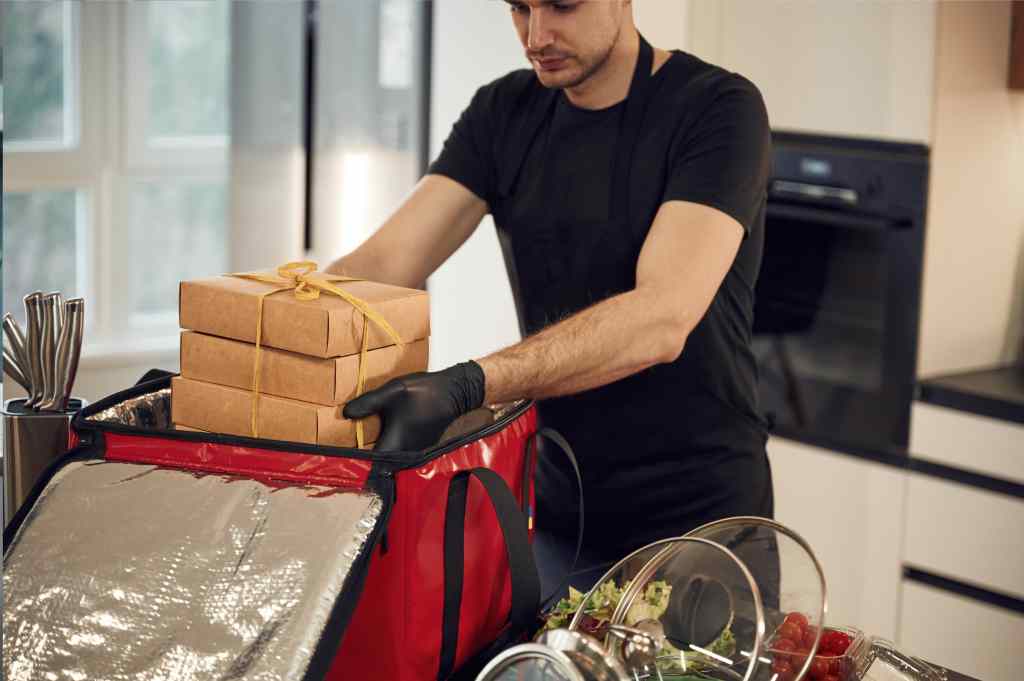The Rise of Private Label Brands
Private Label brands have experienced a remarkable rise in recent years, evolving from their humble beginnings as low-cost alternatives to becoming significant players in the retail market. In the past year Private Label sales reached 19.5% of dollar share, up 3% YoY.1 Retailers have recognized the potential of Private Labels to drive customer loyalty and differentiate themselves from competitors. As a result, they have invested heavily in the development and marketing of these brands, ensuring they meet and exceed the expectations of modern consumers. This shift has led to Private Label products that boast superior quality, unique flavors, and innovative features, often rivaling or surpassing national brands in terms of customer satisfaction and value.
One of the key drivers behind the rise of Private Label brands is the growing consumer demand for unique and specialized products that align with their values and preferences. Health-conscious consumers, for instance, are drawn to Private Labels that offer organic, non-GMO, and plant-based options, while environmentally conscious shoppers seek out brands with sustainable packaging and eco-friendly practices. Additionally, the flexibility and agility of Private Label brands allow retailers to quickly respond to emerging trends and consumer feedback, ensuring that their product offerings remain relevant and appealing. This dynamic approach not only strengthens customer loyalty but also positions Private Labels as innovative leaders in the ever-evolving retail landscape.
Key Innovations in Private Label Products
In recent years, Private Label products have evolved beyond their traditional role as budget-friendly imitations of branded items. Today, consumers purchasing Private Label items enjoy reasonably priced products that effectively meet their needs. This shift in perception reflects the significant improvement in quality, with consumers no longer viewing Private Labels as inferior alternatives but rather as competitive and reliable options in their own right. And much of this comes down to their focus on innovation.
With that in mind, here are 4 key ways Private Label is using innovation to grow:
1. Product Quality and Differentiation
Private Label brands have made significant strides in product quality and differentiation, positioning themselves as strong contenders in the marketplace. Gone are the days when Private Label products were seen as mere replicas of national brands. Today, these products boast innovative formulations, superior ingredients, and meticulous craftsmanship, ensuring they meet or even exceed consumer expectations. By investing in quality, Private Label brands have successfully built trust and loyalty among consumers, who now view these products as reliable and valuable alternatives.
Differentiation has also become a key strategy for Private Label brands, allowing them to stand out in a crowded market. Through unique packaging, exclusive formulations, and tailored product offerings, these brands cater to niche markets and specific consumer preferences. For example, Private Labels are increasingly introducing health-conscious options, such as organic, non-GMO, and plant-based products, to appeal to the growing segment of mindful shoppers. By focusing on quality and differentiation, Private Label brands are not only capturing market share but also reshaping consumer perceptions and expectations.
2. Health and Wellness Focus
According to NIQ’s 2023 Consumer Outlook, 46% of consumers identified physical or mental wellness as one of their top priorities.2 And, with 47% of Americans having at least one of three risk factors that contribute to heart disease, it’s no surprise that Private Label brands are increasingly aligning their product portfolios with the health and wellness trend.3 This focus on health and wellness is evident in the introduction of products that are organic, non-GMO, gluten-free, and free from artificial additives and preservatives. By offering these healthier alternatives, Private Label brands are catering to the preferences of health-conscious consumers who are more discerning about the ingredients and nutritional value of the products they consume. This shift not only meets consumer expectations but also positions Private Label brands as responsible and innovative players in the market.
Furthermore, Private Label brands are tapping into the functional food and beverage segment, providing products that offer specific health benefits beyond basic nutrition. This includes items fortified with vitamins, minerals, probiotics, and other functional ingredients designed to support overall well-being, immune health, and mental clarity. By emphasizing health and wellness, Private Label brands are appealing to a broader audience that values proactive health management. This strategic focus not only enhances the brand’s market position but also drives loyalty and repeat purchases among consumers seeking to lead healthier lifestyles.

5 Key Habits of Successful FMCG Brands
The markets are still challenged with inflation, shifting demand, and more.
But some CPG brands are rising above the rest to gain market share and build the foundation for a stronger future. To help you better understand how they’re achieving their goals, we’ve compiled some of the key habits we’ve seen across the spectrum in an easy-to-read eBook for you.

3. Sustainability Initiatives
Private Label brands are increasingly prioritizing sustainability initiatives as part of their core strategies, responding to the growing consumer demand for eco-friendly products. In fact, 69% of consumers state that sustainability is more important to them than it was two years ago.4 This shift is evident in the adoption of sustainable sourcing practices, environmentally friendly packaging, and a commitment to reducing the overall carbon footprint of their products. Brands are sourcing ingredients that are certified organic, fair trade, and responsibly harvested, ensuring that their products not only meet consumer expectations but also contribute positively to the environment. This approach not only addresses the ecological concerns of today’s consumers but also positions Private Label brands as leaders in the movement toward more sustainable consumption patterns.
In addition to sustainable sourcing, Private Label brands are innovating in the realm of packaging, opting for materials that are recyclable, biodegradable, or made from recycled content. These efforts are aimed at reducing waste and promoting a circular economy, where packaging materials are continuously repurposed rather than ending up in landfills. Brands are also exploring innovative packaging solutions that extend the shelf life of products, thereby reducing food waste. By integrating sustainability into their product development and supply chain processes, Private Label brands are not only meeting the demands of eco-conscious consumers but are also setting new standards in the industry for sustainable business practices.
4. Technology Integration
Technology integration is revolutionizing the Private Label sector, enhancing everything from product development to consumer engagement. Brands are leveraging advanced data analytics to understand consumer preferences and predict market trends, allowing them to develop products that precisely meet the needs and desires of their target audience. This data-driven approach helps in optimizing product assortments, ensuring that Private Label offerings are both relevant and competitive. Moreover, the use of artificial intelligence and machine learning in supply chain management is streamlining operations, reducing costs, and improving efficiency, thereby enabling Private Label brands to deliver high-quality products at affordable prices.
Beyond product development and supply chain management, technology integration is also transforming the way Private Label brands interact with consumers. E-commerce platforms and mobile apps are being utilized to provide a seamless shopping experience, offering personalized recommendations based on consumer behavior and preferences. Additionally, social media and digital marketing tools are being used to engage with consumers more effectively, building brand loyalty and driving sales. Through these technological advancements, Private Label brands are not only enhancing their operational capabilities but also significantly improving the overall consumer experience.
The Omnichannel Approach to Private Label Innovation
The omnichannel approach is reshaping the landscape of Private Label innovation, enabling brands to meet consumers wherever they are and create a cohesive, seamless shopping experience. By integrating multiple channels—such as brick-and-mortar stores, e-commerce platforms, and mobile applications—Private Label brands can ensure a consistent brand presence and customer experience across all touchpoints. This approach not only enhances convenience for consumers but also allows brands to gather valuable insights from various channels, driving more informed decision-making and personalized marketing strategies.
Here are 4 ways Private Label is using omnichannel sales to gain market share:
1. Seamless Integration Across Channels
Seamless integration across channels is crucial for Private Label brands aiming to deliver a unified shopping experience to their customers. By ensuring consistency in product availability, pricing, and promotions across brick-and-mortar stores, online platforms, and mobile apps, brands can effectively meet the diverse preferences and shopping behaviors of modern consumers. This integration not only enhances convenience but also fosters brand loyalty as customers can seamlessly transition between different channels without encountering discrepancies or disruptions in their shopping journey.
Moreover, leveraging technology such as customer relationship management (CRM) systems and data analytics enables Private Label brands to gain deeper insights into consumer behavior and preferences across channels. This data-driven approach empowers brands to personalize marketing efforts, tailor product offerings, and optimize inventory management based on real-time insights. By aligning their omnichannel strategies with consumer expectations and technological advancements, Private Label brands can not only drive sales and customer satisfaction but also differentiate themselves in a competitive market landscape.
2. E-commerce and Online Marketplaces
In today’s retail landscape, e-commerce and online marketplaces have become indispensable channels for Private Label brands seeking broader reach and accessibility. Within the US, 86% of CPG dollar sales are represented by “omnichannel shoppers.” These platforms offer an unparalleled opportunity for brands to showcase their products to an expanded audience, capitalize on digital marketing strategies, and leverage the convenience of online shopping. Private Label brands can establish a strong presence on popular e-commerce sites like Amazon, Walmart.com, or their own dedicated online storefronts, providing customers with easy access to their products from the comfort of their homes.
Furthermore, the digital nature of e-commerce allows Private Label brands to gather valuable consumer data, which informs strategic decision-making and enhances customer engagement. Through sophisticated analytics tools, brands can track sales trends, monitor customer feedback, and adjust marketing campaigns in real-time. This data-driven approach not only optimizes online visibility and sales performance but also enables brands to personalize the shopping experience, recommend relevant products, and cultivate long-term relationships with their online customer base. As e-commerce continues to evolve, Private Label brands that embrace digital innovation and prioritize seamless online experiences are poised to thrive in the competitive retail landscape.
3. In-store Innovations
In-store innovations play a pivotal role in enhancing the visibility and appeal of Private Label brands amidst traditional retail environments. Retailers are increasingly investing in immersive and interactive displays that showcase Private Label products in compelling ways. These innovations aim to captivate shoppers’ attention, educate them about the unique value propositions of Private Label items, and ultimately drive purchasing decisions. For instance, strategically placed digital signage and interactive kiosks can provide detailed product information, highlight sustainability initiatives, and offer personalized recommendations based on shoppers’ preferences.
Moreover, Private Label brands are leveraging in-store innovations to create seamless omnichannel experiences. By integrating technologies like QR codes and augmented reality (AR), shoppers can access additional product details, customer reviews, and even virtual demonstrations right from their smartphones. This convergence of physical and digital experiences not only enriches the shopping journey but also strengthens brand credibility and trust. As consumers increasingly seek convenience, transparency, and value, Private Label brands that innovate within physical retail spaces can effectively differentiate themselves, foster customer loyalty, and drive sales growth in competitive marketplaces.
4. Mobile and Social Media Engagement
In the realm of Private Label innovation, mobile and social media engagement are pivotal for reaching and engaging modern consumers effectively. Mobile devices serve as powerful tools for connecting with shoppers on the go, offering convenience and immediacy in accessing information about Private Label products. Retailers and brands are optimizing their mobile platforms with user-friendly interfaces, seamless navigation, and secure payment options to enhance the shopping experience. Mobile apps are increasingly integrated with features like personalized recommendations based on purchase history, enabling retailers to tailor promotions and discounts specifically for Private Label items.
Social media platforms also play a crucial role in amplifying the visibility and appeal of Private Label brands. Through engaging content, such as product tutorials, customer testimonials, and behind-the-scenes glimpses into production processes, brands can cultivate a loyal community of followers. Influencer partnerships and user-generated content further amplify brand reach and credibility among target audiences. By leveraging social media analytics and trends, retailers can refine their messaging and promotional strategies to resonate with health-conscious consumers seeking value-driven and sustainable Private Label options. This proactive engagement on mobile and social platforms not only drives brand awareness but also fosters ongoing customer relationships, contributing to long-term brand loyalty and advocacy.
Private Label Challenges and Opportunities
In the dynamic landscape of Private Label brands, several challenges and opportunities shape their trajectory in the market. One of the primary challenges lies in overcoming the historical perception of Private Labels as generic or inferior alternatives to branded products. While strides have been made in enhancing quality and value, there remains a lingering skepticism among some consumers regarding the overall consistency and reliability of Private Label offerings compared to established brands. To counter this, retailers are focusing on transparency and product differentiation, emphasizing quality assurance and highlighting unique selling points such as sustainable sourcing, health benefits, or exclusive formulations. Effective communication of these product attributes through robust marketing campaigns and consumer education initiatives is essential to build trust and credibility among discerning shoppers.
Moreover, the competitive landscape poses another significant challenge for Private Label brands. As retailers increasingly invest in expanding their Private Label portfolios, the market becomes saturated with diverse options across various categories. This proliferation necessitates a strategic approach to stand out amidst the crowd. Differentiation strategies, such as innovation in product design, packaging, and flavors, are crucial to capturing consumer attention and driving purchase intent. For instance, leveraging consumer insights to develop products tailored to emerging trends like plant-based diets or functional beverages can provide a competitive edge. Additionally, optimizing distribution channels and enhancing visibility on e-commerce platforms and in-store shelves are pivotal in expanding market reach and maximizing sales opportunities.
However, within these challenges lie ample opportunities for Private Label brands to thrive. One key opportunity lies in the growing consumer preference for value-driven products that offer quality comparable to or exceeding branded counterparts. As economic uncertainties prompt consumers to seek affordable yet reliable options, Private Labels are well-positioned to meet this demand. Retailers can capitalize on this opportunity by investing in product innovation and enhancing customer experience across all touchpoints. Furthermore, the shift towards sustainability presents a significant avenue for differentiation and growth. By adopting eco-friendly practices in sourcing, manufacturing, and packaging, Private Label brands can appeal to environmentally-conscious consumers seeking sustainable alternatives. Embracing these opportunities requires agility, innovation, and a deep understanding of evolving consumer preferences, paving the way for Private Label brands to carve out a distinctive and lucrative niche in the competitive retail landscape.

Use NIQ Data and Insights to Compete in Private Label
Achieving Private Label growth (or competing with it) may seem difficult. But, continuing to grow while consumer confidence is shaken is possible for all emerging brands if they have a solid understanding of the factors affecting their business. Insight into the state of the current market, your position in it, and evolving trends hinges on your ability to access up-to-date and accurate data.
With Byzzer powered by NIQ’s reporting solutions, you can have all the data you need at your fingertips. Byzzer provides breakdowns of a wide range of attributes and markets in easy-to-digest reports. Best of all, we’ll show you how to leverage this information for your action plan.
Interested in more valuable insights like these?
Sources:
1 NIQ, Total US xAOC, – Private Label Dollar Sales: 4 weeks ending April 27, 2024, PL: Private Label NB: National Brands
2 NIQ Report – 2023 Consumer Outlook
3 Virani SS, Alonso A, Aparicio HJ, Benjamin EJ, Bittencourt MS, Callaway CW, et al. Heart disease and stroke statistics—2021 update: a report from the American Heart Association. Circulation. 2021;143:e254–e743.
4 NIQ Report – The changing climate of Sustainability




